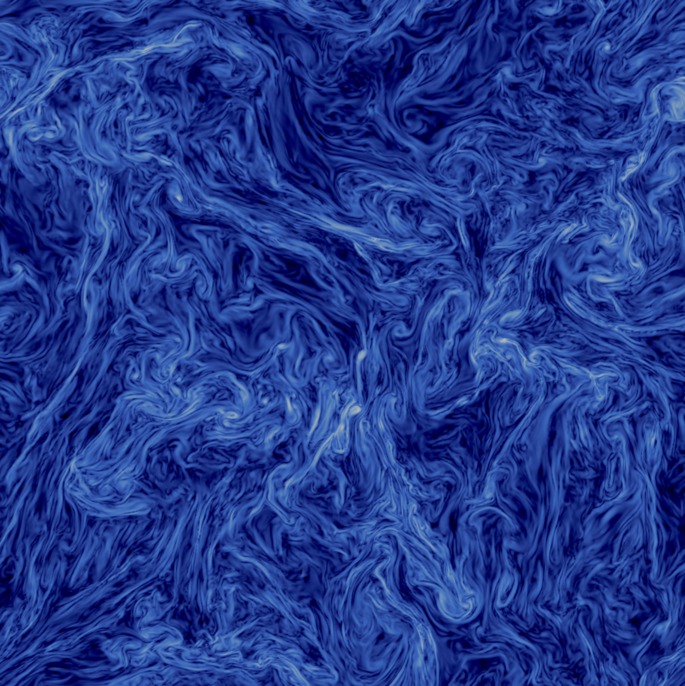Polymeric turbulence
Turbulent flows containing modest amounts of long-chained polymers have remained an intriguing area of research since the discovery of turbulent drag reduction. Here, we perform direct numerical simulations of statistically stationary, homogeneous, and isotropic turbulent flows of dilute solutions of polymers at various Reynolds and Deborah numbers.
At large Reynolds number, we present evidence that there is a range of scales r over which the energy spectra and the structure functions show new scaling consistent with recent experimental results. In particular, we find that for small wavenumbers k, the kinetic energy spectrum shows Kolmogorov–like behavior which crosses over at a larger k to a novel, elastic scaling regime, E(k)~k^(−ξ), with ξ≈2.3. We uncover the mechanism of the elastic scaling by studying the contribution of the polymers to the flux of kinetic energy through scales, and show that this elastic behaviour is non-monotonic in the Deborah number.
At low Reynolds number, our simulations show that elastic turbulence, though a low Reynolds number phenomenon, has more in common with classical, Newtonian turbulence than previously thought. In particular, we find power-law spectra for kinetic energy E(k)∼k^(−4), independent of the Deborah number. In real space, as expected, the velocity field is smooth, but, crucially, with a non-trivial sub-leading contribution. Interestingly, the results show clear evidence of intermittency and multifractality.

